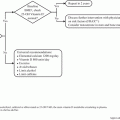(1)
Office of the General Counsel, Tulane University, New Orleans, LA, USA
(2)
Department of Legal Services, The University of Texas MD Anderson Cancer Center, Houston, TX, USA
Chapter Overview
This chapter explores a number of important legal issues that cancer survivors may encounter. Issues explored include health and other insurance coverage; labor law issues, including the Americans with Disabilities Act; travel and leisure; financial estate and advance care planning, including different types of advance directives commonly used in the health care setting; and genetic testing, research study participation, and intellectual property. This chapter is intended to provide a brief, cursory overview and is not an in-depth or exhaustive analysis. Following review of this chapter, the reader will hopefully be better informed regarding certain general concerns that may arise in the legal arena related to cancer survivorship.
Introduction
Cancer survivors may encounter a number of legal issues. These issues might be initially encountered early in the cancer experience or might appear only during the survivorship phase. This chapter attempts to provide insight into an array of legal issues that cancer survivors may encounter, but it must be emphasized that nothing in this chapter is legal advice; any legal questions or concerns should be addressed with a competent professional legal advisor.
Insurance Issues
One of the foremost concerns experienced by cancer patients and cancer survivors is access to comprehensive, affordable health insurance. Health insurance can be difficult to find and cost-prohibitive for cancer survivors. Health insurance “risk pools” have been established to deal with this issue, and although these risk pools appear to increase access to insurance for certain individuals, they do not necessarily always address other, related issues, such as lifetime or yearly benefit caps, the high cost of co-pays and deductibles, or lack of coverage for certain services. The Patient Protection and Affordable Care Act may help ameliorate this situation because the new law seeks to define the minimum coverage required by insurance plans, eliminate certain caps on coverage, abolish the exclusion of coverage for preexisting conditions, provide subsidies to help make insurance coverage more affordable, and set up health insurance exchanges intended to increase access and reduce costs. However, gaining access to appropriate health care services through an affordable health insurance plan continues to be one of the primary issues of concern for cancer survivors.
Additionally, cancer survivors may encounter issues with other types of insurance products. For instance, life insurance policies may have increased premiums, short- and long-term disability policies may be more difficult or more expensive to obtain, and specialized health insurance policies, such as for vision or dental care, may also be more difficult to obtain or more costly.
Employment Issues
Cancer survivors may also encounter a variety of employment-related issues. Survivors often have concerns related to access to group insurance benefits that may restrict their employment options. Additionally, survivors may encounter issues related to posttreatment needs and abilities that may or may not fall within the purview of the Americans with Disabilities Act (ADA). For instance, survivors may encounter physical or mental limitations after treatment that they did not experience before. These limitations may be related to surgical changes, such as amputation or reconstruction; general physical function, such as how long or how far the individual is comfortable walking or traveling or the need for assistive devices such as a cane, walker, or wheelchair; or a diverse range of mental functioning and neurologic issues, such as anxiety or changes in cognitive function.
Although the ADA requires employers to make reasonable accommodations in certain circumstances, employers may not necessarily be obligated to permit survivors to continue with their former jobs if the survivors’ abilities with regard to essential job functions have changed. Employers also are not necessarily obligated to provide additional time for breaks, travel, or medical appointments. ADA law is a specialized area of legal practice and some survivors may need to consult an attorney with expertise in this area to fully understand the legal rights and responsibilities of employers and employees in this context. Also, because the ADA is a federal law, the United States Department of Justice maintains an ADA webpage (http://www.ada.gov) that may be of benefit to survivors with questions regarding this area of the law.
Travel and Leisure Issues
Survivors may encounter changed circumstances related to travel and leisure as well. Some of these circumstances may pertain to transportation and access to health care while traveling, and others may pertain to the signing of waivers and disclaimers associated with certain leisure activities both at home and abroad. Travelers may be asked to sign waivers indicating that they have no preexisting conditions that would increase their risk of injury from participating in certain activities, and cancer survivors may be unsure of how to approach this because the exact parameters for such waivers are often unclear.
Stay updated, free articles. Join our Telegram channel

Full access? Get Clinical Tree





